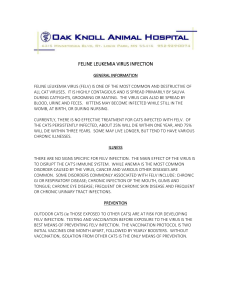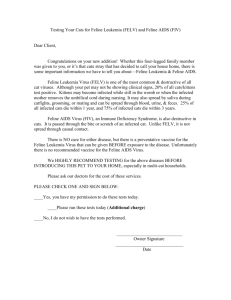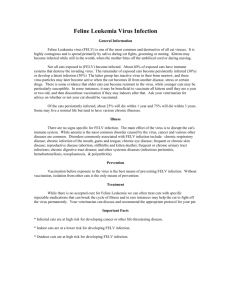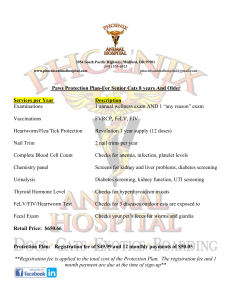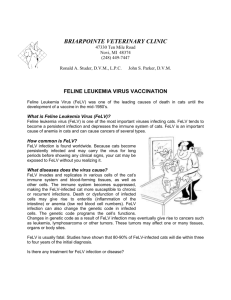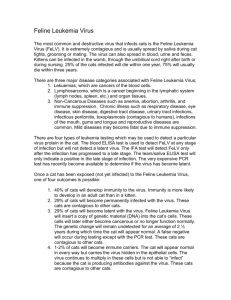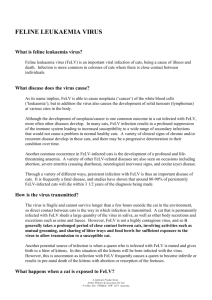THINKING OF ADOPTING A FELV+CAT-click here
advertisement
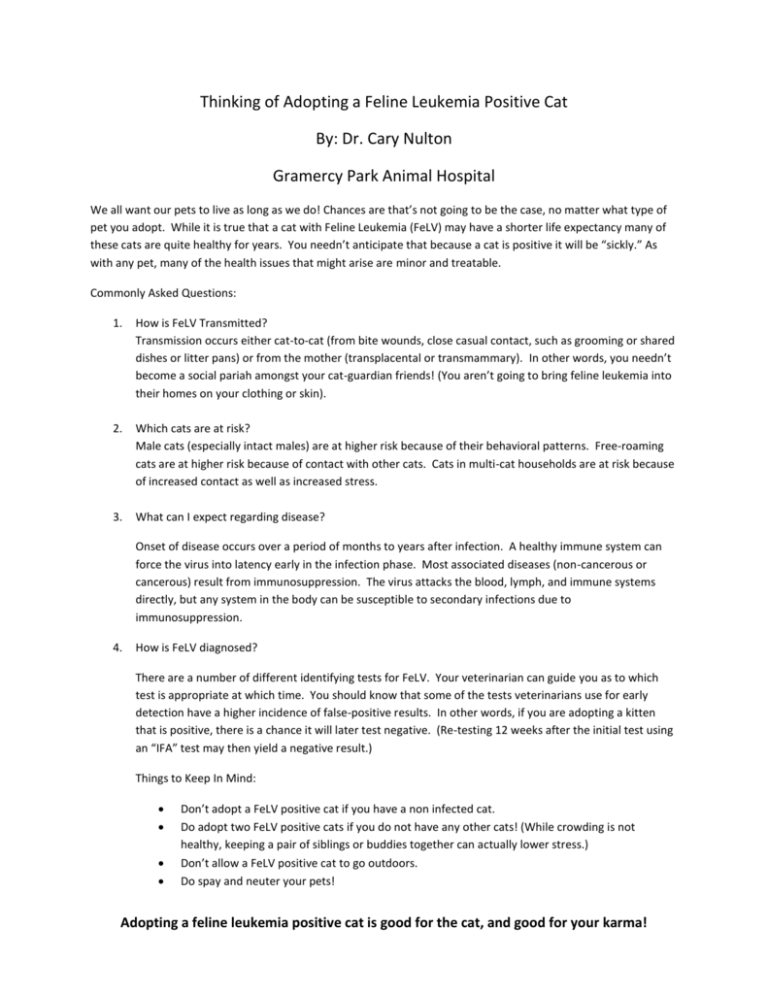
Thinking of Adopting a Feline Leukemia Positive Cat By: Dr. Cary Nulton Gramercy Park Animal Hospital We all want our pets to live as long as we do! Chances are that’s not going to be the case, no matter what type of pet you adopt. While it is true that a cat with Feline Leukemia (FeLV) may have a shorter life expectancy many of these cats are quite healthy for years. You needn’t anticipate that because a cat is positive it will be “sickly.” As with any pet, many of the health issues that might arise are minor and treatable. Commonly Asked Questions: 1. How is FeLV Transmitted? Transmission occurs either cat-to-cat (from bite wounds, close casual contact, such as grooming or shared dishes or litter pans) or from the mother (transplacental or transmammary). In other words, you needn’t become a social pariah amongst your cat-guardian friends! (You aren’t going to bring feline leukemia into their homes on your clothing or skin). 2. Which cats are at risk? Male cats (especially intact males) are at higher risk because of their behavioral patterns. Free-roaming cats are at higher risk because of contact with other cats. Cats in multi-cat households are at risk because of increased contact as well as increased stress. 3. What can I expect regarding disease? Onset of disease occurs over a period of months to years after infection. A healthy immune system can force the virus into latency early in the infection phase. Most associated diseases (non-cancerous or cancerous) result from immunosuppression. The virus attacks the blood, lymph, and immune systems directly, but any system in the body can be susceptible to secondary infections due to immunosuppression. 4. How is FeLV diagnosed? There are a number of different identifying tests for FeLV. Your veterinarian can guide you as to which test is appropriate at which time. You should know that some of the tests veterinarians use for early detection have a higher incidence of false-positive results. In other words, if you are adopting a kitten that is positive, there is a chance it will later test negative. (Re-testing 12 weeks after the initial test using an “IFA” test may then yield a negative result.) Things to Keep In Mind: Don’t adopt a FeLV positive cat if you have a non infected cat. Do adopt two FeLV positive cats if you do not have any other cats! (While crowding is not healthy, keeping a pair of siblings or buddies together can actually lower stress.) Don’t allow a FeLV positive cat to go outdoors. Do spay and neuter your pets! Adopting a feline leukemia positive cat is good for the cat, and good for your karma!

